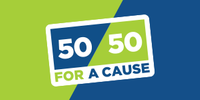With spring's arrival, gardeners across the southeast are getting ready to plant their vegetables and other plants.
Marilyn Simons, the off-site manager of the Estevan Farmer's Market, says you can start your garden already, but you need to be careful depending on which vegetables you are planting.
"The first part of the season you get really excited because things start to get really warm, but the nights can still be a little cool, so don't plant anything yet because there could be the risk of frost," Simons said. "I do recommend that some of the cooler crops that can handle frost, like cauliflower, broccoli, cabage, and carrots can already be planted."
"Hopefully in the next few days it'll (the soil) dry up and people can get out into their gardens and prep their gardens and get ready for planting."
Simons said she usually gets ready to plant her regular vegetables around May 10, her sensitive vegetables around May 20, her flowers around May 24, and she tries to plant her cucumbers and tomatoes around June 1.
She also gave some advice on how to plant your rows.
"You're going to make sure your rows are level. Of course, you're going to want to plant you rows as long as possible from east to west is recommended and just make sure that soil is nice and lush and ready to go."
Simons has a garden at her farm in the Alameda area and has four acres of crop. She says she waters her garden regularly depending on the time of year.
"At the beginning before everything sprouts, I water every single morning. Once it sprouts I usually switch to one to three times a week," she said. "On hot summer days in the middle of August when you're looking at 40 plus temperatures, I usually water every day."
She also offered these tips for gardeners:
- Beans are easy to plant and grow quickly, but they don't tolerate frost, so you should plant them later
- Peas are also easy to plant and are usually ready by mid July
- Test your soil levels in your garden
- Avoid puddles of water and make sure the drainage is good in your garden
Simons also has plants in her garden that attract bees and other insects.
"The more things you can attract, those pollinators, the more it'll help your environment and help combat other things in the garden," she said.
Finally, she offered some advice for first time gardeners.
"If you're just going to start a garden in your backyard in the city, I recommend doing a raised bed," said Simons, who has been gardening professionally for nine years. "You can control it better, you can map it out, always pre-plan before you plant."
"There are many apps out there that can do garden planting where you put your vegetables on a list. It can let you know how big they grow, and how much room you need to have."













